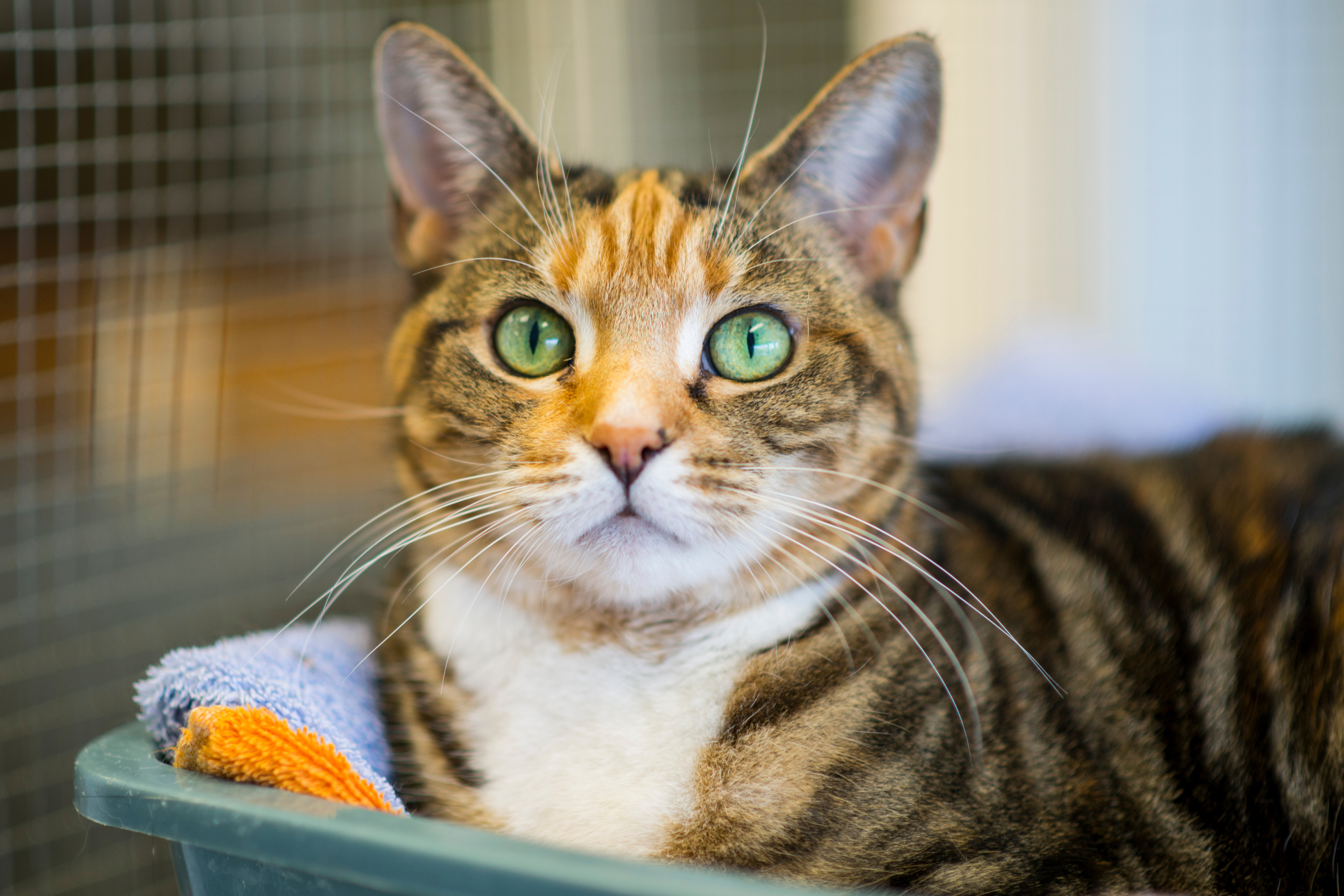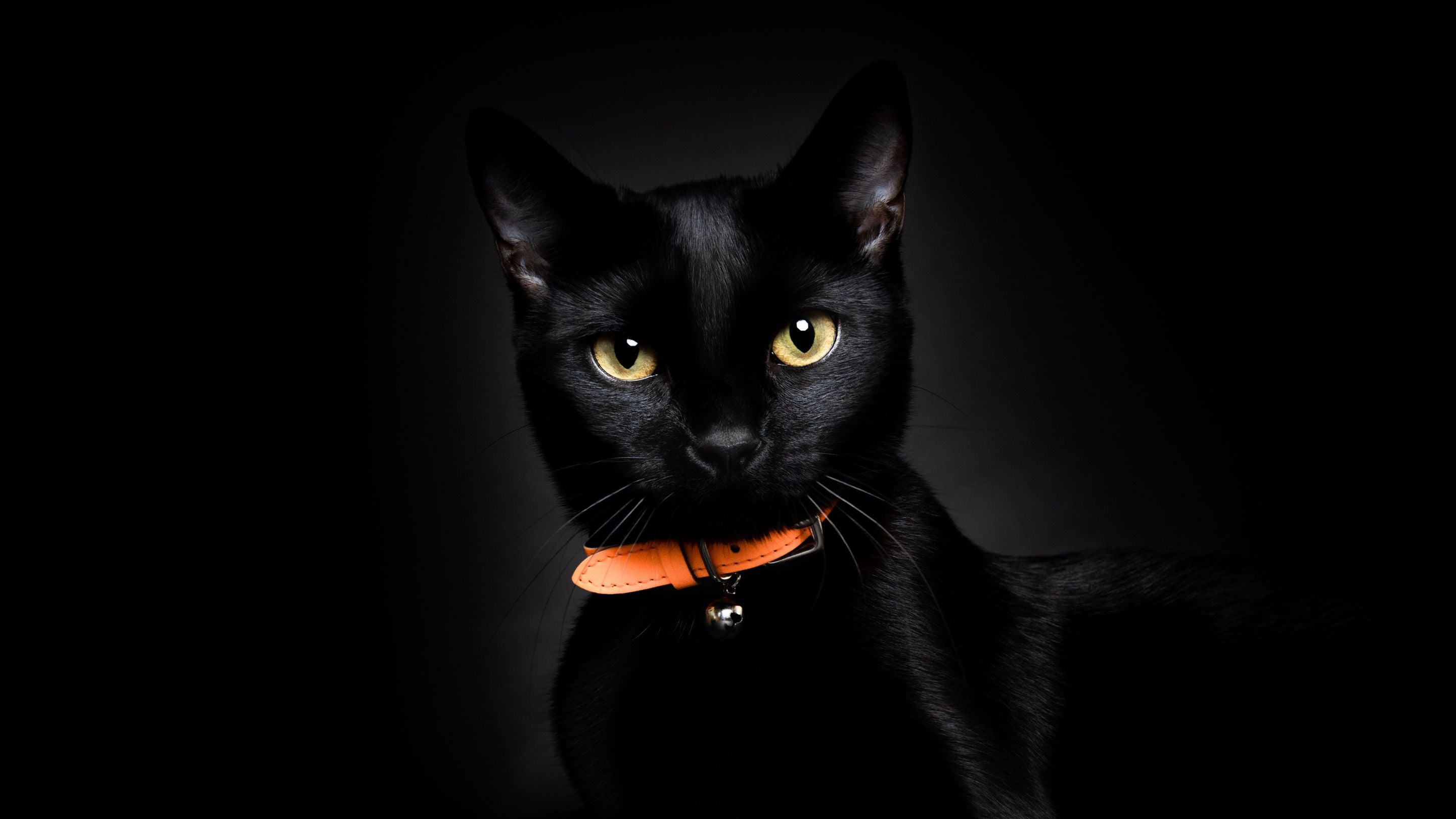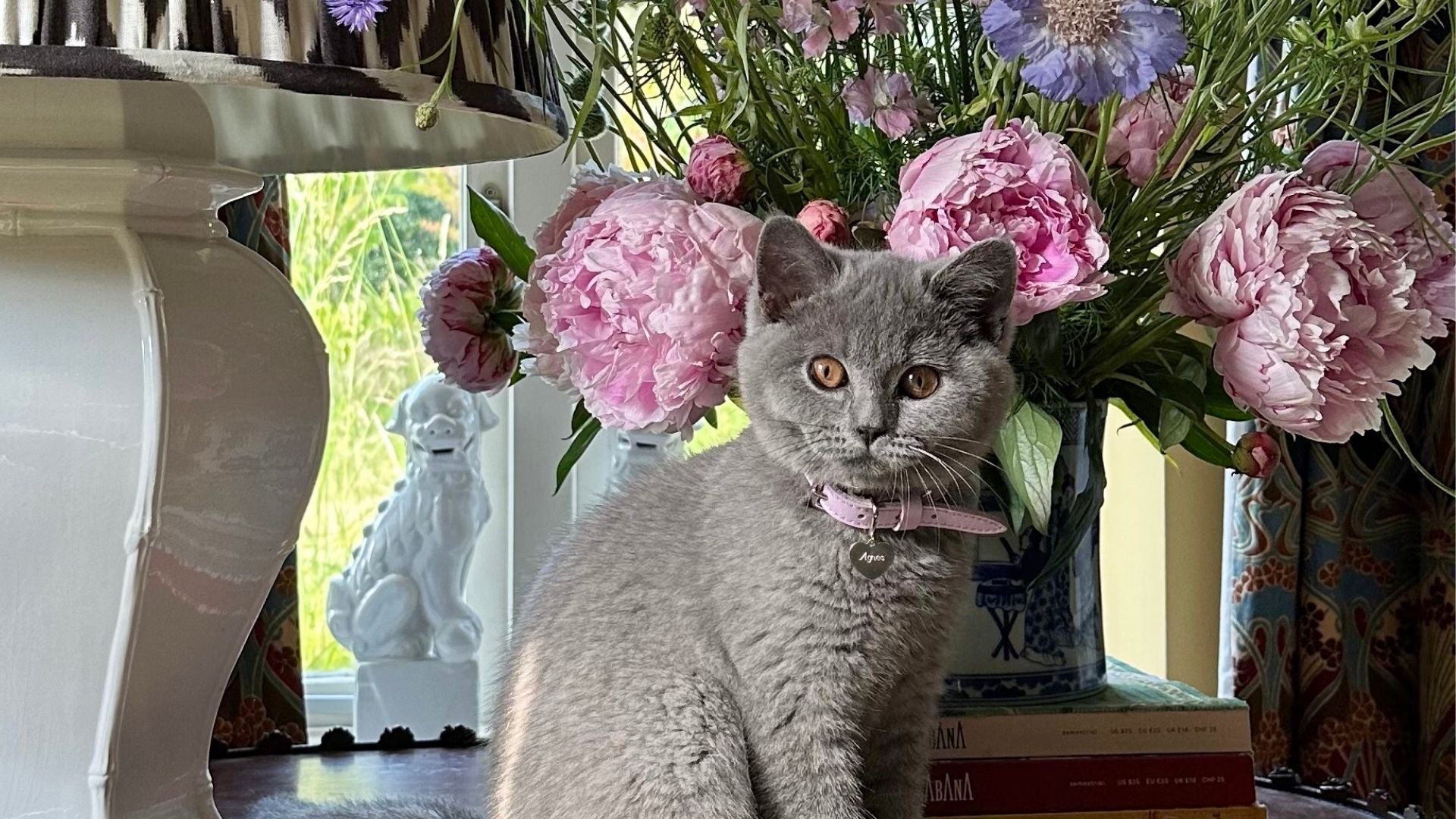As the number of people buying pedigree cats is on the rise, sadly, the number of cats adopted from rescue centres continues to decline. According to the CATS Report 2023 conducted by Cats Protection, in the last 12 months, around 690,000 cats were bought in the UK, and 260,000 were adopted.
If you are contemplating whether to get a pedigree cat or adopt a kitty from a rescue centre, please consider both options carefully to ensure you can provide your new feline friend with all they need to live a happy and enriched life.

In this article, we answer some frequently asked questions about adopting a cat and the process involved. We hope it helps!
I am interested in adopting a cat. Where should I start?
How exciting! There are so many fabulous felines who need loving homes who can’t wait to meet you. Start by considering whether you have the time, energy, space, and money to welcome a cat into your family. If you are confident you have all that’s required, the exciting process may begin!
Where can I adopt a cat?
There are countless animal rehoming centres across the country, so start by narrowing down your search by checking rescue centres that are local to you before contacting the more prominent animal rescue charities, such as the RSPCA and Battersea Cats and Dogs Home (UK).

How do I adopt a cat?
The exact process of adopting a cat is different for every adoption centre, but you usually register your interest by filling out an online application or by having an initial consultation over the phone. Expect someone from the centre to discuss matching you with a cat or kitten that suits your home and lifestyle. They may ask you questions such as: Do you have other pets? Children? Outside access? Are you looking for a kitten or an adult cat? Do you prefer them to be male or female? Answers to these questions will help match you with the perfect cat for you and the kitty in question.
If there are suitable kitty matches at the rescue centre, you will be invited to meet each other for the very first time. The rescue centre may conduct a home visit to ensure everything is in order, and then you can bring your kitty home!

How much does it cost to adopt a cat?
In the UK, most animal charities and rescue centres charge an adoption fee. This varies depending on age, pedigree, and which animal shelter you go to, but it is usually between £85-£200. This is to cover costs such as flea and worm treatment, vaccination, microchipping, and neutering. Charities such as the RSPCA will ensure that every cat is vaccinated, microchipped, and neutered where possible. The adoption fee ensures these charities can continue helping animals find their forever homes.
There will also be some costs to prepare your home for your new arrival. You will need to purchase a cat carrier, litter tray, toys, bowls, food and pet insurance. Consider setting some money aside for future vet bills to cover the cost of neutering and vaccinating your kitty if and when this is required.
Sadly, in recent years, there has been a considerable increase in the number of people selling cats online, which is particularly bad on Facebook. The private sale of animals has been banned on the platform, but that hasn’t stopped some people. It is unregulated and there are many horror stories of animal cruelty and malpractice with people breeding and rehoming cats for profit, so never adopt a cat from one of these sources unless they have reputable proof of their credentials.
As noted in the Cats Protection CATS Report 2023: “As a social media platform, rather than a classified advertising site, Facebook has not signed up to the Pet Advertising Advisory Group’s (PAAG) voluntary advertising standards. This means that the platform is potentially more attractive to unscrupulous sellers, risking more tragic stories of cats being bred under unsuitable circumstances and underage, sick or injured kittens being put up for sale.”
We would always advise against it, but if you do rehome a cat from an online source, please make sure to see the conditions the cat was in previously and immediately take the cat to the vet to check for any health conditions or parasites.
Should I adopt an older cat?
When an older cat finds themselves in a shelter, it could be their last opportunity to find a loving home, so don’t pass them by or rule them out. Be aware that vet bills and insurance costs are likely higher due to age so make sure you are aware of any existing health issues. The shelter should be able to provide some medical history.
Adopting an older cat is an excellent option for some people because it suits their lifestyle better. If you lead a busy life or are out at work all day, an older cat might be your perfect match! Senior kitties are generally less active and happy to nap while you’re out (in preparation for some evening cuddles when you get home!). Every cat is different, and age isn’t necessarily a factor, so keep your options open.
Unlike a kitten, you won’t need to litter train them, and they are generally less playful than a younger cat, so they may be more independent and docile. Giving an older cat a happy home later in life can feel very rewarding, especially if the cat is bereaved from losing an elderly owner.

Should I adopt a kitten?
Kittens are balls of cute, fluffy fun, but (be warned) they are hard work!
Some people like to adopt kittens so they grow up in their family and build a special bond from a young age. However, you must ensure you have enough time and energy to play with them, train them, and ensure they are entertained and stimulated. If you work from home, then adopting a kitten will be easier as you will be around more to help them settle in. I took a two-week holiday when I welcomed Percy home; it was a brilliant way to build a special bond with him.
 Sonja and Percy
Sonja and PercyWhy aren’t people adopting black cats?
You may have heard about the rising trend in people not wanting to adopt black cats. According to the latest stats, black cats take around 13% longer to find a new home than other cats.
Black cats can be challenging to photograph in dimly lit environments. This not only makes it harder for them to stand out in online adoption listings (where photos play a crucial role in attracting potential adopters), but researchers believe that people may be drawn to breeds with lighter or more interesting markings because they want to share pictures of their kitty on social media.
This has become such a problem that Cats Protection created National Black Cat Day (27th October, UK) to dispel myths about black cats, promote their positive qualities, and highlight their unique personalities. Black cats are as gorgeous as any other! Our reflective collars look particularly smart on our midnight-coated friends, as Meowdels Salem and Zienna demonstrated in our Lumino Lux photoshoot.
 Zienna meowdelling our Neon Green Reflective collar
Zienna meowdelling our Neon Green Reflective collarIs it possible to adopt a pedigree cat?
Yes, it is possible to adopt a pedigree cat. Pedigree kitties, like any other breed or mixed breed, can end up in animal shelters or rescue organisations for various reasons, such as owner surrender, abandonment or being found as strays. Sometimes, purebreds can end up in a shelter after being rescued from an unreputable breeder. If you want to adopt a specific pedigree cat, contact local animal shelters, rescue groups, or breed-specific rescues. They may have purebred cats available for adoption or can put you on a waiting list. Additionally, there are sometimes specific rescue organisations dedicated to particular breeds of cats, so doing some research online can help you find them. You can also look for retired Studs (male) or Queens (female), which breeders sometimes look to rehome once the cat has finished their breeding career.
Remember that even though they may be purebred, cats in shelters or rescues are just as deserving of loving homes as any other cat. Adopting from a shelter or rescue gives a cat in need a second chance at a happy life, so thank you for considering it.

We hope this guide helps!




Share:
International Women's Day: Debunking the Crazy Cat Lady stereotype
Meet the Artist: Annabel Pearl